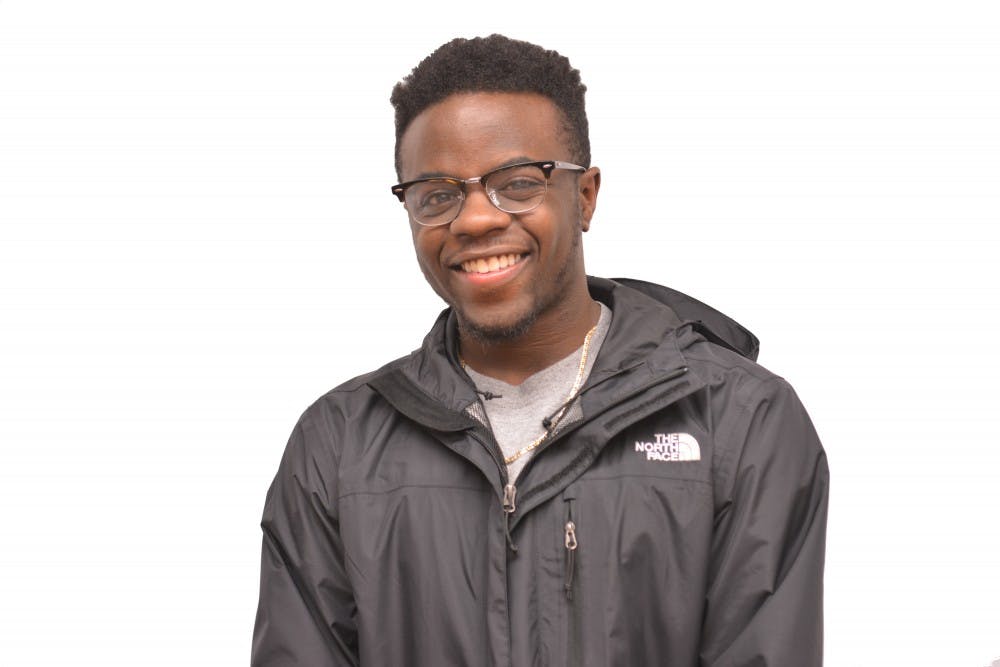In my opinion, the most powerful quote of Martin Luther King Jr. is perhaps his most overlooked. It is a central theme in his “Letter from Birmingham Jail,” describing his conflict and bewilderment with the “white moderate.” He described the white moderate as one who is “more devoted to ‘order’ than to justice; who prefers a negative peace which is the absence of tension to a positive peace which is the presence of justice; who constantly says: “I agree with you in the goal you seek, but I cannot agree with your methods of direct action.” As I study the history of protests by black students in response to racism on campus, it pains me to say that the white moderate is woven into the fabric of the history of students at Penn.
Let’s throw things back to 1979, when several members of Kappa Sigma fraternity wore KKK robes to a Halloween costume party. It is worth mentioning that campus tensions over racism within Kappa Sigma had already been brewing, as brothers had wrongly accused a black Penn administrator of stealing one of their bikes while threatening him with a crutch. This chain of incidents led to a protest by 75 black students on campus that ended on College Green.
Russell Brooks, chairman of the Black Student League at the time, stated that “the blatantly insensitive act by this fraternity has helped to illustrate the larger issue, which is the racist atmosphere which pervades our campus ... ” When a member of Kappa Sigma fraternity was asked to comment on the incident, he refused to do so after the protest, stating the fraternity wanted to “stay clear” of the incident. The University then revoked university recognition of Kappa Sigma, just to reverse the decision two and a half months later after students called the punishment “unfair.”
Just two years later in 1981, W.E.B. DuBois House receptionist Jackie Brown received at least eight threatening phone calls from someone who asked her if she “liked dead n*****s.” In response, a protest organized by the Vice Provost for University Life, approximately 1,000 students, faculty members and administrators occurred at DuBois, as they linked arms and sang “We Shall Overcome.”
Just as the Civil Rights movement did not end in the 1980s, neither did racism on Penn’s campus. In December 2014, a member of the Phi Delta Theta fraternity posted an extremely insensitive photo on Facebook. The photo showed the brothers, most of whom are white, unashamedly smiling for a holiday photo with a dark-skinned blow-up doll. It is worth mentioning that behind the brothers in the photo, two Confederate generals are framed on shelves in the room the picture was taken in.
As a response, Students Organizing for Unity and Liberation transformed Locust Walk into a slave auctioning block in front of Phi Delt. During this protest, Victoria Ford read a poem entitled “Sally Speaks to Tom about their Daughter Beyoncé,” which was read over 20 times. This poem was not mentioned or published in the DP; however, a guest column by students Dillon Weber and Aidan McConnell went on to call SOUL’s protest a damage to “the environment for debate” and a competition to see “who could shout the loudest and make the most talked about demonstration.” By doing so, Weber and McConnell seemed to be more concerned with the protest SOUL had regarding the racism of Phi Delt more than racism itself.
MLK said it best: When it comes to solidarity, “lukewarm acceptance is much more bewildering than outright rejection.” A central theme that is found far too often throughout our history is that Penn students are more concerned with how black students react to racism, rather than the racism itself.
When I research op-eds and student responses during racially tense periods of time on campus, I see many critiques of how black students protest, yet barely any critique of the racism we experience on campus. If we never put in the work to help black students on campus deal with racism, yet find ourselves often critiquing the way they respond to it, we must examine what our intentions truly are. Allyship is not found in those who wear a safety pin, but in those who dedicate their efforts towards diminishing the inequities that cause protests in the first place.
CALVARY ROGERS is a College sophomore from Rochester, N.Y., studying political science. His email address is calvary@sas.upenn.edu. “Cal’s Corner” usually appears every Wednesday.









